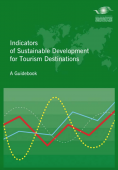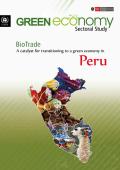This report, by UNEP and INTERPOL, focuses on illegal logging and its impacts on the lives and livelihoods of often some of the poorest people in the world set aside the environmental damage. It underlines how criminals are combining old fashioned methods such as bribes with high tech methods such as computer hacking of government web sites to obtain transportation and other permits. The report spotlights the increasingly sophisticated tactics being deployed to launder illegal logs through a web of palm oil plantations, road networks and saw mills.

This report provides an update on recent developments in the field of Regional Trade Agreements and the environment. Issues arising in the implementation of RTAs with environmental considerations are examined as well as experience in assessing their environmental impacts. It is the fourth update prepared under the aegis of the Joint Working Party on Trade and Environment. The report covers developments over the period from late 2009 to December 2010 and is based on publicly available information.

The main purpose of the study is to build a framework that will strengthen Peru’s BioTrade-related national programmes and will serve as a catalyst for the country’s transition to a green economy. The study bases its analysis on a review of the most relevant existing literature on BioTrade and on an extensive consultation process with stakeholders involved in the development of BioTrade in Peru (e.g. specialists, policy-makers, donors, commercial investors).
This study will be a useful resource for policy-makers, such as the Ministry of Economy and Finance, the government authority that draws policies regarding the creation of incentives to improve the environment for additional investment opportunities. The study offers suggestions, including the use of financial and economic instruments, to promote further growth of the BioTrade sector. The study also supports the National BioTrade Commission’s efforts to build a better public understanding of BioTrade and to raise the general awareness about the sector within the Peruvian society.
This document sets out a framework for evaluating the implementation of environmental provisions in Regional Trade Agreements. The checklist approach to the evaluation of countries‘ experience of implementation complements the OECD‘s Checklist for Negotiators (2008). Among the issues addressed are institutional arrangements, co-operation, capacity building, public participation, resolution of differences and assessment.
